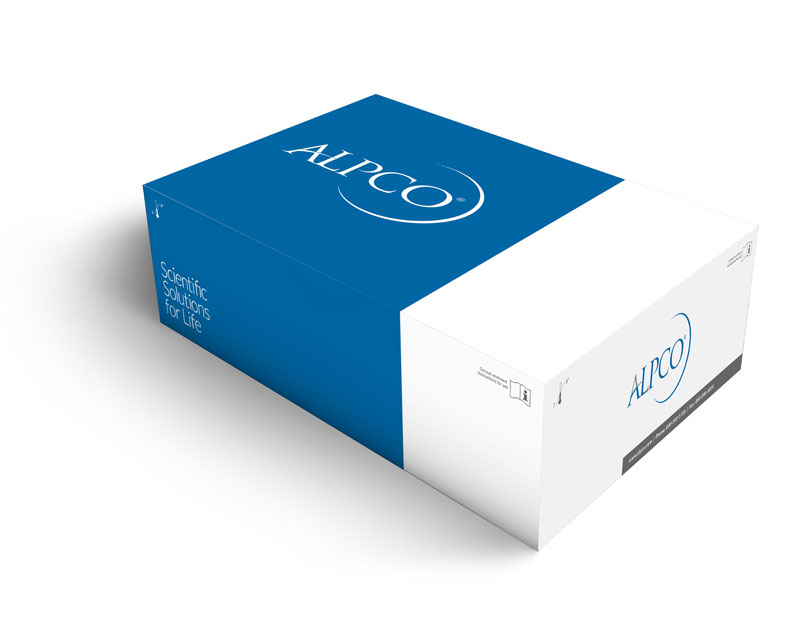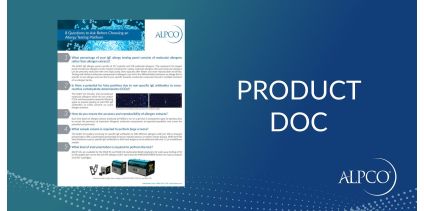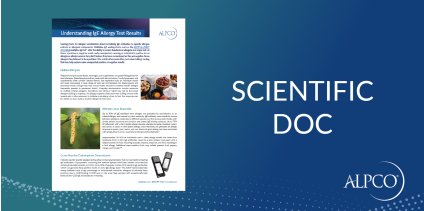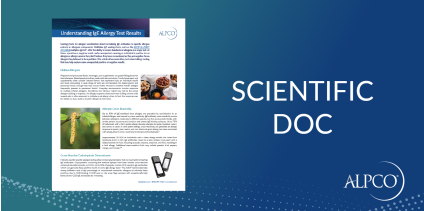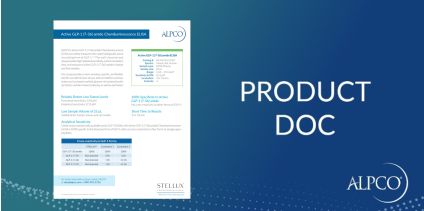Beta-Cell Activating Factor ELISA (BAFF ELISA)
$1,280.00
Catalog
30-9410
Beta-Cell Activating Factor ELISA (BAFF ELISA)
Species
Human
Regulatory Status
Research Use Only. Not for Use in Diagnostic Procedures.
Product Distribution
Available in North America Only
Range
2 - 128 ng/mL
Sensitivity
0.95 ng/mL
Sizes
96 Wells
Sample Types
Cell Culture, Serum
Inc Time Hour
5
Inc Time Minute
50
Inc Time Overnight
No
Inc Time See Protocol
No
Sample Size
50
Detection
Colorimetric
BAFF (B cell activating factor belonging to the TNF family, also known as BLyS or TALL1) is a cytokine expressed predominantly by cells of the immune system such as neutrophils, monocytes, macrophages, dendritic cells, follicular dendritic cells, activated T cells and some malignant B cells. BAFF binds three distinct receptors (BAFFR, TACI and BCMA) predominantly expressed on B cells, although activated T cells also express BAFFR. BAFF is a master regulator of peripheral B cell survival, and also acts in processes such as immunoglobulin isotype switch and B cell co-stimulation. Beside its major role in B cell biology, BAFF co-stimulates activated T cells.
Deregulated expression of this membrane-bound protein, which can readily be released in a soluble form by proteolytic cleavage, leads to autoimmune disorders in mice. In the human, elevated levels of soluble BAFF have been detected in the serum of individuals with various autoimmune diseases, such as rheumatoid arthritis (RA), Sjögren syndrome (SS) and systemic lupus erythematosus (SLE). BAFF levels are also elevated in individuals with multiple myeloma and B-cell chronic lymphoid leukemia (B-CCL).
The Beta-Cell Activating Factor ELISA (BAFF ELISA) is for Research Use Only. The Beta-Cell Activating Factor ELISA (BAFF ELISA) is not for use in diagnostic procedures.
For more information on the Beta-Cell Activating Factor ELISA (BAFF ELISA), call 800-592-5726.
Deregulated expression of this membrane-bound protein, which can readily be released in a soluble form by proteolytic cleavage, leads to autoimmune disorders in mice. In the human, elevated levels of soluble BAFF have been detected in the serum of individuals with various autoimmune diseases, such as rheumatoid arthritis (RA), Sjögren syndrome (SS) and systemic lupus erythematosus (SLE). BAFF levels are also elevated in individuals with multiple myeloma and B-cell chronic lymphoid leukemia (B-CCL).
The Beta-Cell Activating Factor ELISA (BAFF ELISA) is for Research Use Only. The Beta-Cell Activating Factor ELISA (BAFF ELISA) is not for use in diagnostic procedures.
For more information on the Beta-Cell Activating Factor ELISA (BAFF ELISA), call 800-592-5726.

